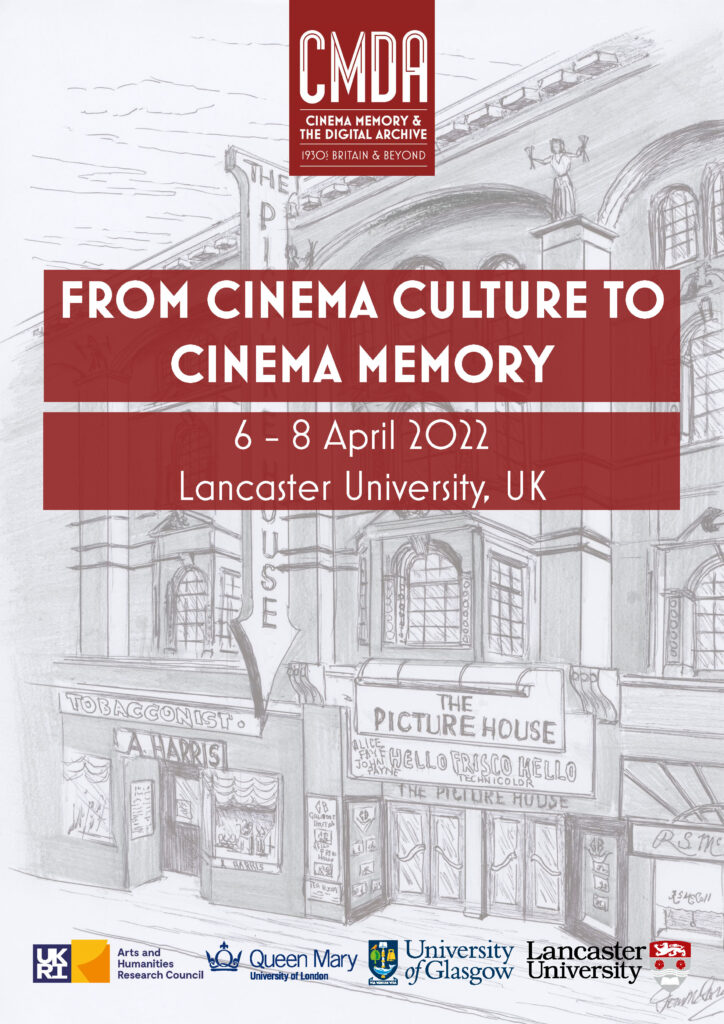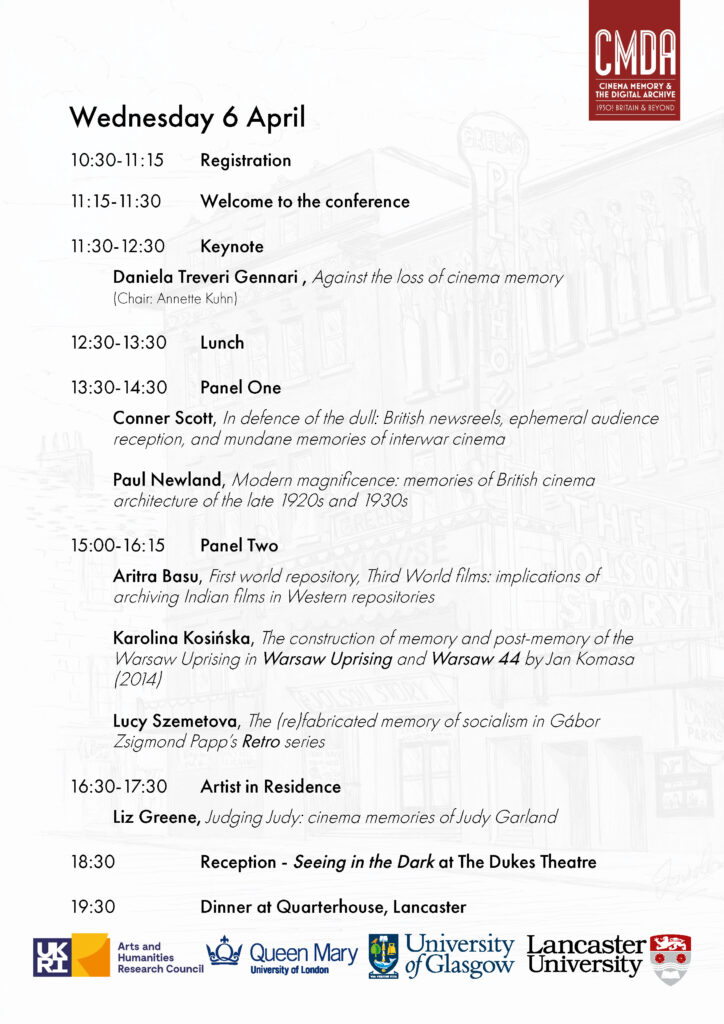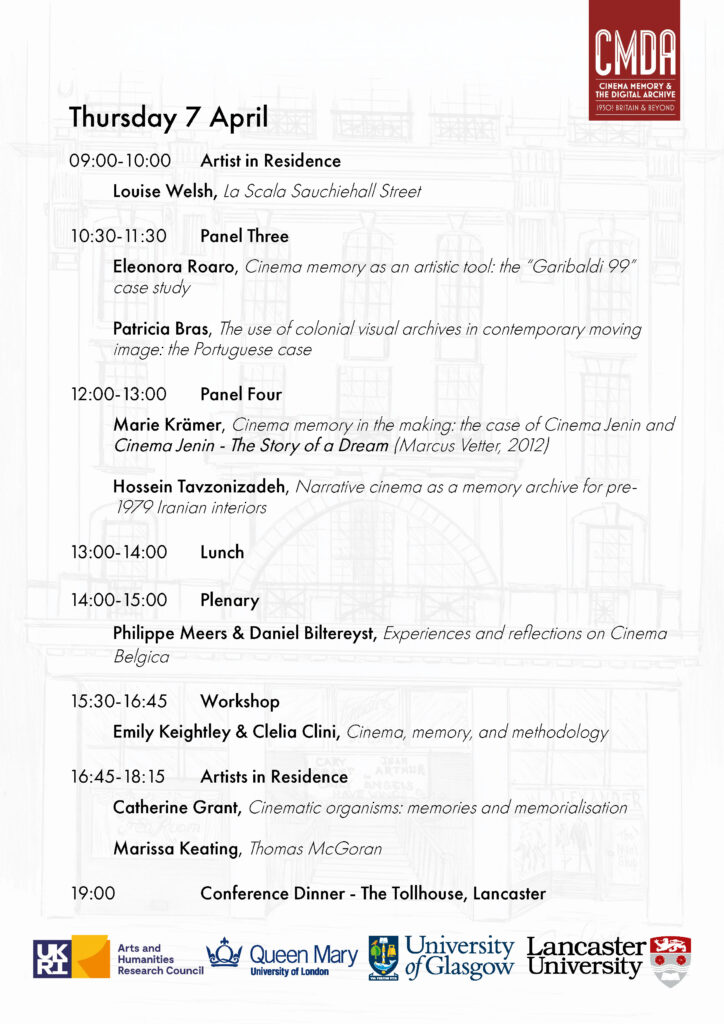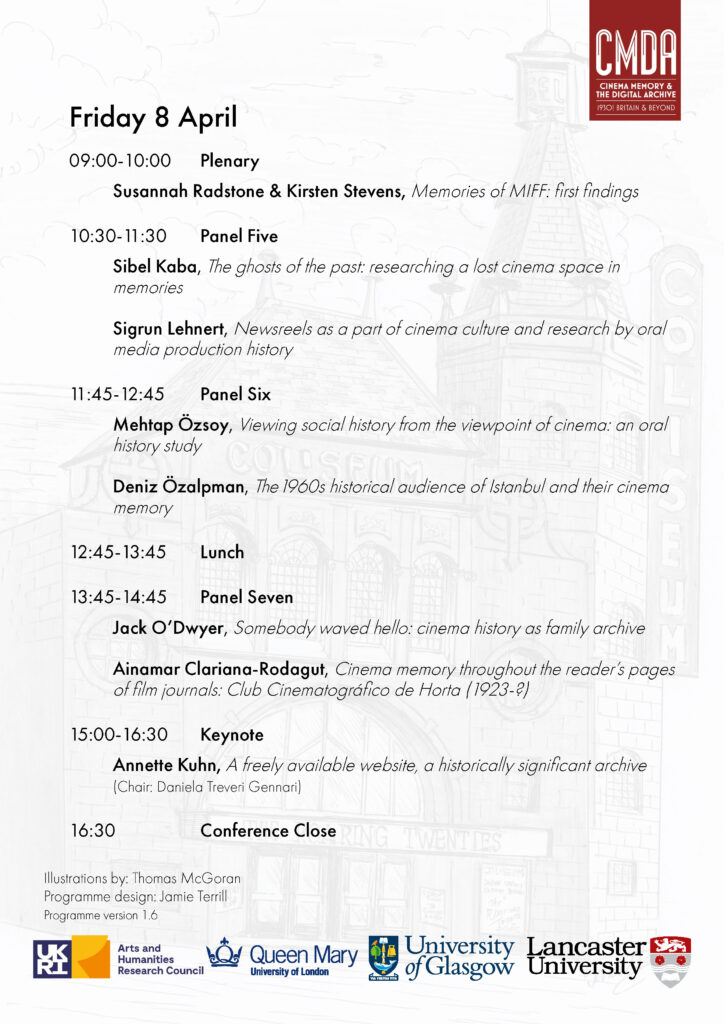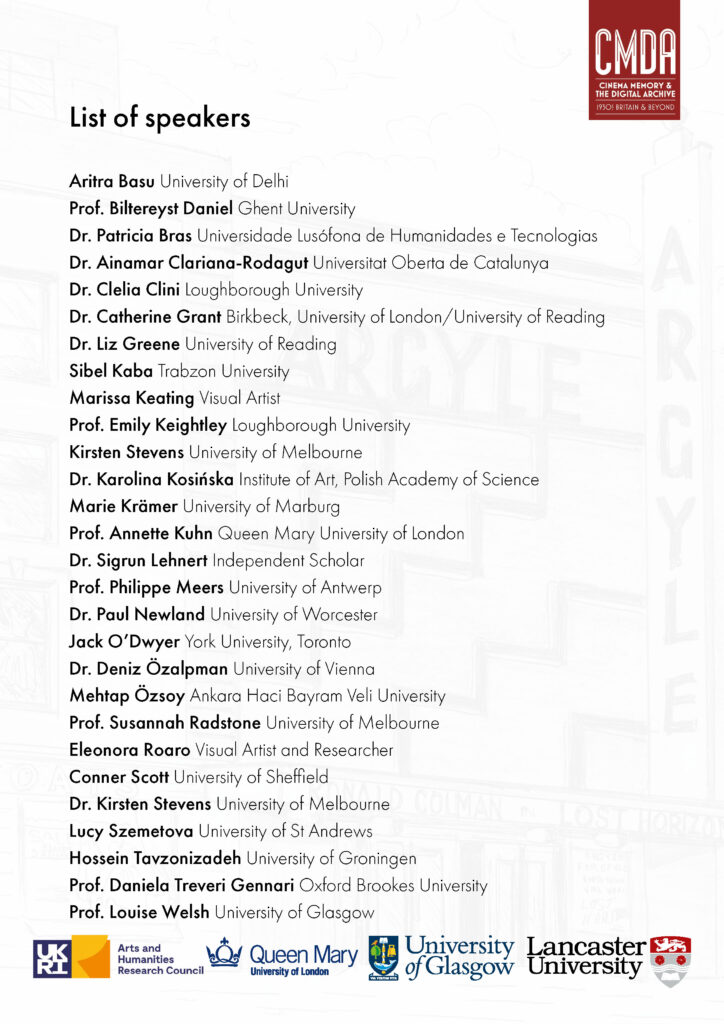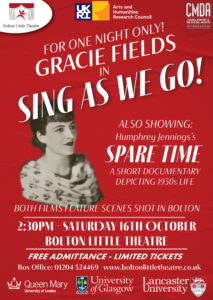
Bolton Event Flyer
Annette Kuhn
CCINTB’s 1990s interview fieldwork in the North West of England took in the cotton textile manufacturing town of Bolton, Lancashire, which boasted more than twenty cinemas in the interwar years and was the location of Mass Observation’s celebrated 1930s ‘Worktown’ studies.[1] As part of its COVID-delayed engagement programme, Cinema Memory and the Digital Archive put on a public event at the newly refurbished Bolton Little Theatre on the afternoon of Saturday 16 October 2021.
Following a brief introduction by CMDA Co-Investigator Annette Kuhn, two classics of 1930s British cinema–Sing As We Go! and Spare Time–were screened in the Theatre’s main auditorium.
The most famous and fondly recalled of ‘Lancashire Britannia’[2] Gracie Fields’s films, the 1934 feature Sing as We Go! includes scenes shot in Bolton and in the seaside resort of Blackpool, forty miles away. After losing her job at a Lancashire cotton mill, high-spirited Grace Platt (Fields) has various adventures in Blackpool before returning to the mill when a new business deal enables it to re-open. Scripted by playwright and novelist J.B. Priestley, this fast-moving film is basically a series of sketches linked by songs and romantic complications, set against the all-pervading reality of a factory closure.
Sing as We Go! was preceded by a short film, Humphrey Jennings’s Spare Time. Inspired by Mass Observation and its ‘Worktown’ project, Jennings’s 1939 GPO Film Unit documentary looks at the leisure activities of coal, steel, and cotton communities across Britain, with footage from Sheffield, Manchester, and Pontypridd as well as Bolton: clips of wrestling, ballroom dancing, card games, and pigeon fanciers are edited together in startling combinations to the sounds of brass bands, choirs, and jazz.
In the Little Theatre’s Forge Studio, visitors had time before and after the screening to browse a display of archival materials relating to Bolton and its cinemagoing history, including items from CMDA’s and Live from Worktown’s own collections; enjoy a slide presentation showcasing Bolton’s former cinemas and clips from some of our Bolton interviews; meet CMDA team members; and chat with local experts David Burnham of Live from Worktown and Dick Perkins of Worktown Words, who acted as local liaison, publicising the event, and organising the display.
COVID restrictions meant that the event and the hospitality on offer were more modest in scale than had originally been planned. But the feedback from visitors was very positive; and indeed none of it would have been possible without the support and assistance generously provided over many weeks by David and Dick, by Frances Clemmitt and the Bolton Little Theatre staff and volunteers, and by the Lancaster University students who assisted with hospitality on the day.
An audio walking tour of key cinema sites in Bolton has been created together with an accompanying leaflet to print off or download. Further CMDA public outreach events are being planned to take place in Lancaster and London later in the year.
[1] For details of Bolton fieldwork and participants, go to the Bolton home page.
[2] Jeffrey Richards, ‘Gracie Fields: the Lancashire Britannia (part 1)’. Focus on Film, vol. 33 (1979), 27-35; ‘Gracie Fields: the Lancashire Britannia (part 2)’. Focus on Film, vol.34 (1979), 23-38.
